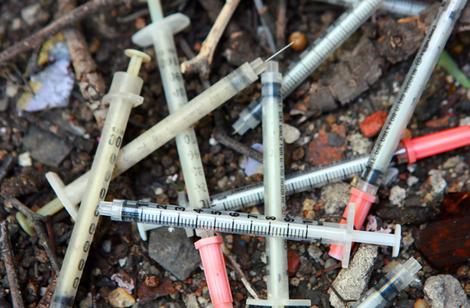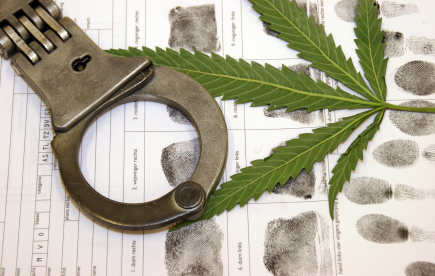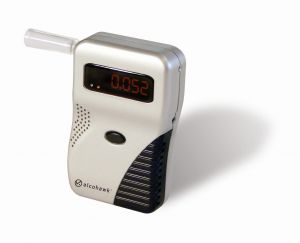 The state’s highest court recently ruled on a lawsuit involving dram shop laws, an issue that has been hotly debated for the last few decades. In essence, dram shop laws refer to the liability of bars and restaurants for the actions of their patrons. A state with dram shop laws provides a third party with a legal right to sue a bar or restaurant, which has continued to serve a patron that is visibly drunk, if the patron causes some sort of injury to the third party. Dram shop is simply a traditional term for any establishment that sells alcohol. These laws typically apply to DUI accidents involving serious injury or death. Currently there are 43 states with some sort of dram shop statute, but both the Maryland Legislature and the Courts have not been inclined to follow the majority on this issue, with neighboring Virginia and Delaware sharing the same view. Numerous bills have been proposed over the years, but none has ended up on the governor’s desk for a signature, and the state’s highest court has never upheld a civil action against a bar or tavern for an act of a patron that occurred outside the establishment.
The state’s highest court recently ruled on a lawsuit involving dram shop laws, an issue that has been hotly debated for the last few decades. In essence, dram shop laws refer to the liability of bars and restaurants for the actions of their patrons. A state with dram shop laws provides a third party with a legal right to sue a bar or restaurant, which has continued to serve a patron that is visibly drunk, if the patron causes some sort of injury to the third party. Dram shop is simply a traditional term for any establishment that sells alcohol. These laws typically apply to DUI accidents involving serious injury or death. Currently there are 43 states with some sort of dram shop statute, but both the Maryland Legislature and the Courts have not been inclined to follow the majority on this issue, with neighboring Virginia and Delaware sharing the same view. Numerous bills have been proposed over the years, but none has ended up on the governor’s desk for a signature, and the state’s highest court has never upheld a civil action against a bar or tavern for an act of a patron that occurred outside the establishment.
Continue reading →
Drug Overdoses On The Rise In Maryland
 A recent report released by the State Department of Health has brought disturbing news regarding drug use in Maryland. According to the department, drug overdoses increased a considerable 15 percent from 2011 to 2012. The likely culprit for the increase in drug fatalities is the popularity and resulting pervasiveness of heroin in all areas of the state, from downtown Baltimore to the suburbs. We have blogged and posted web pages about the comeback of heroin, and these statistics simply offer more proof that the drug is enjoying a second coming, albeit a deadly one. In 2011 the state reported 245 heroin related deaths, but last year this number ballooned to 378, while the total alcohol and drug related deaths rose from 663 to 761 from 2011 to 2012. Prince George’s County and Baltimore City were responsible for the jump, as most other areas of the state reported a similar number of drug fatalities in the last two years.
A recent report released by the State Department of Health has brought disturbing news regarding drug use in Maryland. According to the department, drug overdoses increased a considerable 15 percent from 2011 to 2012. The likely culprit for the increase in drug fatalities is the popularity and resulting pervasiveness of heroin in all areas of the state, from downtown Baltimore to the suburbs. We have blogged and posted web pages about the comeback of heroin, and these statistics simply offer more proof that the drug is enjoying a second coming, albeit a deadly one. In 2011 the state reported 245 heroin related deaths, but last year this number ballooned to 378, while the total alcohol and drug related deaths rose from 663 to 761 from 2011 to 2012. Prince George’s County and Baltimore City were responsible for the jump, as most other areas of the state reported a similar number of drug fatalities in the last two years.
Continue reading →
State Police Introduce DUI Task Force
 The Maryland State Police officially launched its DUI prevention taskforce at a press conference in Jessup last week. The taskforce is nicknamed SPIDRE for State Police Impaired Driving Effort, and consists of seven specially trained troopers. These troopers will move throughout the state with the goal of impacting every legal jurisdiction. For now though, the taskforce will concentrate its efforts in areas that law enforcement officials have identified as DUI hotspots. These areas, which are documented to have the most alcohol related crashes and citations, include Prince George’s County, Baltimore County, Howard County, Ocean City, and Hagerstown. The taskforce first deployed in PG County back in May and conducted over 1,300 traffic stops. The trooper team made 254 DUI arrests and 53 criminal arrests, and issued over 3,500 traffic citations and repair orders. Clearly the task force is not shy when it comes it issuing tickets, as they averaged almost 3 per traffic stop.
The Maryland State Police officially launched its DUI prevention taskforce at a press conference in Jessup last week. The taskforce is nicknamed SPIDRE for State Police Impaired Driving Effort, and consists of seven specially trained troopers. These troopers will move throughout the state with the goal of impacting every legal jurisdiction. For now though, the taskforce will concentrate its efforts in areas that law enforcement officials have identified as DUI hotspots. These areas, which are documented to have the most alcohol related crashes and citations, include Prince George’s County, Baltimore County, Howard County, Ocean City, and Hagerstown. The taskforce first deployed in PG County back in May and conducted over 1,300 traffic stops. The trooper team made 254 DUI arrests and 53 criminal arrests, and issued over 3,500 traffic citations and repair orders. Clearly the task force is not shy when it comes it issuing tickets, as they averaged almost 3 per traffic stop.
The taskforce will require funding of about $1.5 million, which the Motor Vehicle Administration’s Maryland Highway Safety Office is shelling out in response to the large number of alcohol related crashes on state roads. Last year there were 158 people killing in these crashes and over 3,000 injured. Although theses numbers do not indicate an increase over the yearly average, this is still an extremely high number for a state with such a small total population. Nearly one third of all motor vehicle accidents are in some way caused or related to alcohol and drug consumption. Whether the SPIDRE task force ends up being successful depends on exactly how you define success. DUI suppression initiatives such as task forces, specially trained teams, and checkpoints will always result in more arrests. The state spends millions and the resources and manpower do end up putting people behind bars. But the ultimate goal of these programs should never be about arrests, but rather about prevention and mitigation. The real question should be whether SPIDRE actually makes our roads safer.
Continue reading →
Six Tourists Arrested For Drug Possession In Ocean City
 Law enforcement has reported that six Pennsylvania residents were recently arrested for various drug crimes in Ocean City. To call the out of state residents tourists may be a bit generous, because it seems from the police reports that the six young men and women may have been on the Eastern Shore for business purposes, as in selling the products they were arrested with. The arrest began as most drug arrests do, with a traffic stop for a seemingly harmless infraction. Upon approaching the car, the Ocean City Police officers allegedly observed the occupants acting nervous and suspicious. Thereupon, the cops ordered the occupants out of the vehicle and conducted a search. It is unclear whether the officers obtained permission to search, whether they lied about obtaining permission to search, or whether their observations gave them probable cause to detain and search. What is clear is that the driver and five passengers were all arrested for possession of marijuana and possession of LSD. Three of the occupants were charged with felony possession with intent to deliver, and one was charged with possession of a concealed dangerous weapon, a butterfly knife found on her person. The driver was also issued traffic citations including failure to wear a seatbelt, which undoubtedly was the initial cause of the traffic citation. Four of the occupants were released at the police station, and the other two were taken the Worcester County jail and released after posting a $2,500 bail.
Law enforcement has reported that six Pennsylvania residents were recently arrested for various drug crimes in Ocean City. To call the out of state residents tourists may be a bit generous, because it seems from the police reports that the six young men and women may have been on the Eastern Shore for business purposes, as in selling the products they were arrested with. The arrest began as most drug arrests do, with a traffic stop for a seemingly harmless infraction. Upon approaching the car, the Ocean City Police officers allegedly observed the occupants acting nervous and suspicious. Thereupon, the cops ordered the occupants out of the vehicle and conducted a search. It is unclear whether the officers obtained permission to search, whether they lied about obtaining permission to search, or whether their observations gave them probable cause to detain and search. What is clear is that the driver and five passengers were all arrested for possession of marijuana and possession of LSD. Three of the occupants were charged with felony possession with intent to deliver, and one was charged with possession of a concealed dangerous weapon, a butterfly knife found on her person. The driver was also issued traffic citations including failure to wear a seatbelt, which undoubtedly was the initial cause of the traffic citation. Four of the occupants were released at the police station, and the other two were taken the Worcester County jail and released after posting a $2,500 bail.
Continue reading →
Law Enforcement Initiates Boater Safety Plan
 Maryland law enforcement has officially implemented a boater safety plan in response to the rising number of serious injuries and fatalities on the hundreds of state waterways. The plan, entitled Operation Dry Water, is actually a national initiative, which was created to raise awareness and enforcement of incidents of boating under the influence or BUI. According to the National Association of State Boating Law Administrators, nearly 17 percent of all boating fatalities are caused by alcohol use. Lawmakers and law enforcement agencies decided to adopt the national initiative after a recent three year spike in waterway deaths. In 2011 there were 24 Maryland waterway fatalities and last year there were 11, which is double the 10 year state average.
Maryland law enforcement has officially implemented a boater safety plan in response to the rising number of serious injuries and fatalities on the hundreds of state waterways. The plan, entitled Operation Dry Water, is actually a national initiative, which was created to raise awareness and enforcement of incidents of boating under the influence or BUI. According to the National Association of State Boating Law Administrators, nearly 17 percent of all boating fatalities are caused by alcohol use. Lawmakers and law enforcement agencies decided to adopt the national initiative after a recent three year spike in waterway deaths. In 2011 there were 24 Maryland waterway fatalities and last year there were 11, which is double the 10 year state average.
Continue reading →
Large Scale Heroin Dealer Arrested In Calvert County
Police in Calvert County have announced an arrest in a three month long drug dealing investigation, which concluded last week. The suspect, a 28 year old man hailing from Scotland, Maryland, was arrested on three controlled substance violations including misdemeanor heroin possession, felony possession with intent to distribute, and CDS possession of a large amount. The man was released a few days after being taken into custody on a $75,000 bail. His case is now set for a preliminary hearing in Calvert County District Court on July 12th, but the case will undoubtedly be sent to Circuit Court for disposition.
County police began investigating the man back in March, and used a variety of sources during the course of the investigation. Perhaps the biggest break in the case came when state troopers arrested a different man on a drug violation, and then obtained a search warrant for his phone. Police found numerous text messages between the two men, which discussed potential sales and other drug information. Confidential informants were also used by police to gather information about the 28-year-old man, who was widely believed to have been one of Southern Maryland’s largest heroin dealers. The informants also allegedly told police that the man is known for carrying a firearm to and from trips to his own supplier. This information led police to begin surveillance on the alleged dealer, which was conducted by the Drug Enforcement Unit of the Calvert Police. On the day of the arrest, the DEU followed the man has he allegedly made numerous stops at houses of suspected heroin buyers, and also observed the man engage in a hand to hand transaction with two individuals in an SUV. Calvert County Police and Sheriffs then conducted a traffic stop on the man where they located approximately 100 grams of heroin in the engine compartment of the vehicle, and numerous bundles of cash.
Continue reading →
Maryland Is Top Three In Marijuana Arrests
 The Blog has posted numerous articles on the recent steps taken by the state legislature to lower the maximum punishments for possession of marijuana, and to partially legalize the drug for medical use. We have also posted about more progressive bills introduced by Baltimore area politicians, which received a great deal of support in Annapolis despite never crossing the governor’s desk. Senator Zirkin and Representative Morhaim both proposed legislation designed to decriminalize the personal use of marijuana in this year’s legislative session. The movement is gathering steam, but you wouldn’t know it by looking at the actual data. The fact is that arrests and criminal prosecutions for pot possession are on the rise in Maryland despite the efforts of lawmakers to curb these docket clogging cases. And perhaps the most staggering data is not the rising arrest numbers, but the fact that our state has per capita the third most marijuana possession arrests in the entire country. Closer inspection of the 2010 data reveals that Worcester County has the highest pot arrest numbers in the country for a county with a population over 30,000. This number is no doubt influenced by the obscene amount of Ocean City marijuana arrest during the summer months when the city doubles its police force by hiring truckloads of 21-year-old part time cops. But the highest per capita rate in the country? For a state that is moving toward decriminalization this is indeed shocking.
The Blog has posted numerous articles on the recent steps taken by the state legislature to lower the maximum punishments for possession of marijuana, and to partially legalize the drug for medical use. We have also posted about more progressive bills introduced by Baltimore area politicians, which received a great deal of support in Annapolis despite never crossing the governor’s desk. Senator Zirkin and Representative Morhaim both proposed legislation designed to decriminalize the personal use of marijuana in this year’s legislative session. The movement is gathering steam, but you wouldn’t know it by looking at the actual data. The fact is that arrests and criminal prosecutions for pot possession are on the rise in Maryland despite the efforts of lawmakers to curb these docket clogging cases. And perhaps the most staggering data is not the rising arrest numbers, but the fact that our state has per capita the third most marijuana possession arrests in the entire country. Closer inspection of the 2010 data reveals that Worcester County has the highest pot arrest numbers in the country for a county with a population over 30,000. This number is no doubt influenced by the obscene amount of Ocean City marijuana arrest during the summer months when the city doubles its police force by hiring truckloads of 21-year-old part time cops. But the highest per capita rate in the country? For a state that is moving toward decriminalization this is indeed shocking.
Continue reading →
Supreme Court Reverses Maryland Court of Appeals on DNA Law
 More than a year ago the Maryland Court of Appeals threw out Alonzo King’s rape conviction after ruling that police had illegally seized his DNA sample. Mr. King was arrested on an unrelated assault charge in 2009 and his DNA was collected under authority of a state law, which allowed cops to collect such samples from anyone arrested for a serious offense. This sample was fed into an FBI cold case database several months later and it matched an unidentified sample taken from the scene of a 2003 rape. Arrest and prosecution followed soon thereafter, and Mr. King suffered the same fate that most defendants do when trying to fight a case with inclulpatory DNA evidence, as he was found guilty and later sentenced to life in prison. Shortly after the Court of Appeals vacated King’s guilty plea the United States Supreme Court agreed to hear the case on a writ of certiorari. During the past year Mr. King, and to a lesser extent state law enforcement officers, Governor O’Malley, Attorney General Gansler, and anyone with direct or indirect concerns about our civil liberties have been on edge waiting to hear from the Court, and as of this week the wait is over.
More than a year ago the Maryland Court of Appeals threw out Alonzo King’s rape conviction after ruling that police had illegally seized his DNA sample. Mr. King was arrested on an unrelated assault charge in 2009 and his DNA was collected under authority of a state law, which allowed cops to collect such samples from anyone arrested for a serious offense. This sample was fed into an FBI cold case database several months later and it matched an unidentified sample taken from the scene of a 2003 rape. Arrest and prosecution followed soon thereafter, and Mr. King suffered the same fate that most defendants do when trying to fight a case with inclulpatory DNA evidence, as he was found guilty and later sentenced to life in prison. Shortly after the Court of Appeals vacated King’s guilty plea the United States Supreme Court agreed to hear the case on a writ of certiorari. During the past year Mr. King, and to a lesser extent state law enforcement officers, Governor O’Malley, Attorney General Gansler, and anyone with direct or indirect concerns about our civil liberties have been on edge waiting to hear from the Court, and as of this week the wait is over.
In a five to four decision the Supreme Court ruled that the Maryland DNA statute does not violate our Fourth Amendment rights, and law enforcement officials are free to sample the DNA of anyone arrested for a serious crime. The majority opined that an arrestee’s expectation of privacy is not offended by the minor intrusion of a brief swab of his cheeks, and by contrast the government has a significant interest in identifying the arrestee. The government, according to majority, must be able to accurately identify the arrestee so that the proper name can be attached to his charges, and also so the criminal justice system can make a fully informed decision about the arrestee’s pretrial custody status, i.e. the amount of his bail. The majority then compared DNA sampling to photographing, and the universally accepted, although never by Supreme Court opinion, practice of fingerprinting. The four dissenting Justices deferred to Justice Scalia to pen the dissent, which explained and discarded the majority’s 28-page opinion in 18 pages so brilliant that it was actually easy reading. Needless to say if you don’t have time to read both, start your reading after the words “it is so ordered”.
Continue reading →
Another Baltimore Police Officer Faces Federal Charges
 Just two months ago the Blog posted an article about a police officer that was indicted on federal drug conspiracy and robbery charges. That particular officer, a 36-year-old man, will learn his fate at a June 11th sentencing hearing in federal court, and the embarrassing stain of his arrest and prosecution is still fresh on the minds of top cops at the Baltimore City Police Department. But Maryland’s largest police department now faces yet another scandal involving a crooked officer. The United States Attorney’s Office recently announced the filing of criminal charges and the subsequent arrest of a 25-year-old female police officer that hails from Pikesville. The criminal complaint alleges that the woman stood watch in her marked patrol car while a supposed drug dealer completed a heroin sale at a Baltimore area shopping center. The woman also allegedly provided the supposed drug dealer with information about the identity of police informants, which she obtained from department databases. Unfortunately for the soon to be ex-cop, the supposed drug dealer was actually an informant working with the FBI, and the entire transaction is now the basis for a variety of serious felony charges filed against her.
Just two months ago the Blog posted an article about a police officer that was indicted on federal drug conspiracy and robbery charges. That particular officer, a 36-year-old man, will learn his fate at a June 11th sentencing hearing in federal court, and the embarrassing stain of his arrest and prosecution is still fresh on the minds of top cops at the Baltimore City Police Department. But Maryland’s largest police department now faces yet another scandal involving a crooked officer. The United States Attorney’s Office recently announced the filing of criminal charges and the subsequent arrest of a 25-year-old female police officer that hails from Pikesville. The criminal complaint alleges that the woman stood watch in her marked patrol car while a supposed drug dealer completed a heroin sale at a Baltimore area shopping center. The woman also allegedly provided the supposed drug dealer with information about the identity of police informants, which she obtained from department databases. Unfortunately for the soon to be ex-cop, the supposed drug dealer was actually an informant working with the FBI, and the entire transaction is now the basis for a variety of serious felony charges filed against her.
Continue reading →
NTSB Recommends Lowering Legal Alcohol Limit
 Over 30 years ago the National Transportation Safety Board advised all states to alter their drunk driving laws by lowering the legal blood alcohol limit from .10 to .08. But the NTSB and congress did not have the direct power to compel states to follow this recommendation through federal legislation. As a result, many states were slow to act on the recommendation and some simply ignored it for years. A few states, including our very own Maryland, likely would still have not ratified the .08 limit had it not been for the federal government employing an all too common backhanded tactic to force the hand of the state governments. States depend on the federal government for a variety of funding grants, but perhaps no single grant is larger than the money states are given to build and maintain highways. The federal money obviously comes at a cost, and congress has the authority to take it away as easily as it gives it. In the 90’s congress began to threaten to discontinue federal highway funding, which amounts to tens of millions, to any state that decided to exercise their constitutional autonomy by not following the NTSB’s recommendation. Federalism is great, but money talks, and by 2004 the DUI laws of all fifty states had incorporated a .08 BAC limit. Maryland held out until 2001.
Over 30 years ago the National Transportation Safety Board advised all states to alter their drunk driving laws by lowering the legal blood alcohol limit from .10 to .08. But the NTSB and congress did not have the direct power to compel states to follow this recommendation through federal legislation. As a result, many states were slow to act on the recommendation and some simply ignored it for years. A few states, including our very own Maryland, likely would still have not ratified the .08 limit had it not been for the federal government employing an all too common backhanded tactic to force the hand of the state governments. States depend on the federal government for a variety of funding grants, but perhaps no single grant is larger than the money states are given to build and maintain highways. The federal money obviously comes at a cost, and congress has the authority to take it away as easily as it gives it. In the 90’s congress began to threaten to discontinue federal highway funding, which amounts to tens of millions, to any state that decided to exercise their constitutional autonomy by not following the NTSB’s recommendation. Federalism is great, but money talks, and by 2004 the DUI laws of all fifty states had incorporated a .08 BAC limit. Maryland held out until 2001.
Continue reading →
 Criminal Defense Lawyer Blog
Criminal Defense Lawyer Blog

